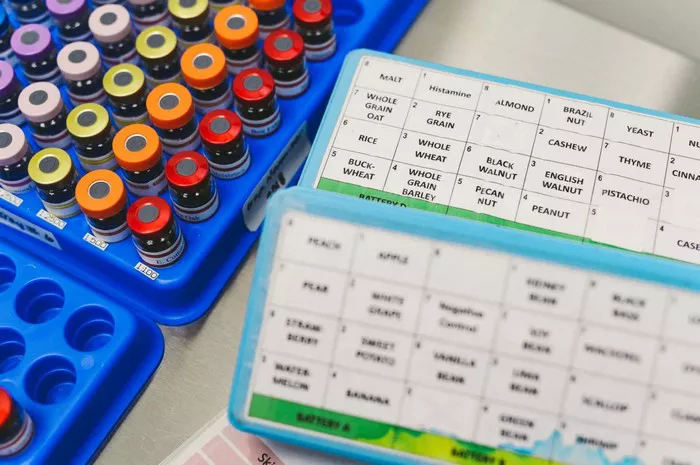The U.S. Food and Drug Administration (FDA) recently approved the first artificial intelligence (AI)-driven at-home allergy test kit, marking a major milestone in personalized allergy diagnostics. Developed by a biotech startup, this kit uses a small blood sample collected via finger prick, which is then analyzed using machine learning algorithms to detect sensitivities to over 200 allergens, including food, pollen, pet dander, and environmental triggers. Unlike traditional skin prick tests or lab-based blood tests, this AI-powered system provides results within 48 hours and offers tailored avoidance recommendations based on the user’s geographic location and lifestyle.
Clinical trials involving 5,000 participants demonstrated 98% accuracy in identifying IgE-mediated allergies, comparable to in-clinic testing. The test also differentiates between true allergies and intolerances, reducing unnecessary dietary restrictions. For example, it can distinguish between a life-threatening peanut allergy and a mild lactose intolerance, which traditional tests sometimes conflate.
Despite its convenience, some allergists caution that at-home tests should not replace professional medical advice, particularly for severe allergies requiring epinephrine prescriptions. However, proponents argue that this technology democratizes access to allergy testing, especially for individuals in rural areas or those with limited healthcare access. The kit is expected to retail for $150, with insurance coverage still under negotiation.
You Might Be Interested In:
- Revolutionary Epigenetic Testing Offers New Hope for Accurate Drug Allergy Diagnosis
- Artificial Intelligence Tool Reduces Antibiotic Allergy Mislabeling by 40% in Hospital Systems
- FDA Greenlights First Rapid Desensitization Protocol for Monoclonal Antibody Allergies

